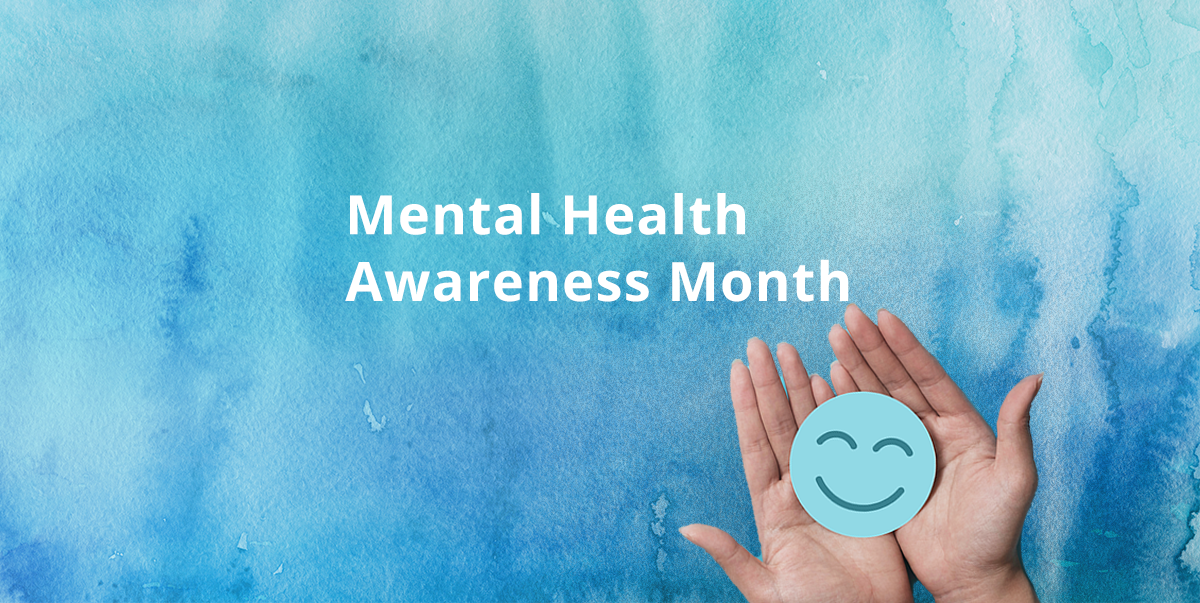From May 1-31, the United States will celebrate Mental Health Awareness Month. You’ve likely seen the green #breakthestigma ribbon, as this is one of the main priorities for the month-long awareness-building event. Let’s take a look at how Mental Health Awareness Month came about and why it’s especially important to extend kindness to ourselves now.
Mental Health Awareness Month: A History
Since 1949, American organizations and advocates have used the month of May to observe and raise awareness about those living with behavioral or mental health issues. Founded by the National Association for Mental Health (now Mental Health America), the initial aims of the month were to provide education and raise awareness about mental illness conditions like depression, bipolar disorder, and schizophrenia—and, perhaps more importantly, to reduce the stigma associated with them.
This is especially important because mental illness is common in the United States. In fact, 21%—or roughly 1 in 5 adults—experienced mental illness in 2020. Acknowledging that 52.9 million people are affected by mental illness is one way to raise awareness and reduce stigma.
Mental Health and Pandemic Stress
It’s also critical to recognize the impact that the loss and uncertainty surrounding the COVID-19 pandemic had on mental health. One in five people reported that the pandemic took a toll on their mental health, including 55% of those with serious mental illness. Many increasingly used drugs or alcohol to self-medicate, and more than 12 million people had serious thoughts of suicide.
This makes recognition of Mental Health Awareness Month all the more important. A good first step is realizing that you are not alone.
You are Not Alone
Whether directly impacted by mental illness, or someone with friends or family members who are, realize that you are not alone. Mental illness is far more pervasive than many believe, and more than 50% of Americans will be diagnosed with a mental illness or disorder at some point in their lifetime, according to the CDC.
Fortunately, this recognition that many people are impacted by mental health also helps to change perceptions about it. A total of 87% of adults in the US agree that a mental health disorder is nothing to be ashamed of, according to the American Psychological Association. Americans are increasingly becoming more open and accepting about mental health, and we can use May to extend support to those facing mental health issues—and treat ourselves to some well-deserved TLC.
Back to Basics
The 2022 theme for Mental Health America’s celebration of Mental Health Awareness month is “Back to Basics.” They recognize the many factors that contribute to a mental illness diagnosis—trauma, genetics, brain chemistry, social determinants of health, habits, and substance use—and steps that can be taken to maintain good mental health.
As something we could all benefit from, here’s what Mental Health America suggests for maintaining good mental health:
- Make good food choices: The gut is considered “the second brain” and not treating it properly can impact overall mental and physical health. Treat it to important nutrients for brain health, like omega-3 fatty acids, B-group vitamins, and vitamin D.
- Stay active: Just 15 minutes of intense exercise, 10 times a week will ensure enough physical activity to support mental health. Even just one hour of weekly exercise can help prevent symptoms of depression.
- Get good quality sleep: Sleep plays a significant role in all bodily functions, including moods. It’s important to get quality sleep, meaning falling asleep in under 30 minutes, waking up no more than once per night, and being asleep for 85% or more during the time you’re in bed.
- Manage stress properly: Chronic, high-level stress can negatively impact how memory, attention, and emotions are processed, so it’s important to have a running list of coping skills that work well (i.e. calling a friend, working out, etc.).
- Build a support system: Social connections can go a long way in boosting mood and general well-being. With the potential to prevent mental health concerns or improve those in individuals suffering from a mental health condition, it’s recommended to connect with people over shared hobbies and focus on quality relationships.
- Recognize when you need help: Take the time to get to know your mental health, perhaps by tracking your mood and energy or assessing certain factors that may influence them. If you notice signs like isolation, a loss in interest, trouble focusing, or a short temper, consider seeking help.
You can start by taking a mental health test. SAMHSA’s Behavioral Health Treatment Services Locator can also help you find treatment information in the United States.
If things have escalated and you need immediate assistance, call the National Suicide Prevention Hotline at 1-800-273-TALK, or text MHA to 741-741. For current and former veterans, the crisis line number is 1-800-273-8255.
Also, remember to stay hydrated! Dehydration has been known to impact not only physical health, but also mental health. Don’t wait until you’re thirsty—use your AquaTru Water Filter to drink lots of water throughout the day, especially during hot weather and after exercise or dealing with a traumatic or stressful event.
Be Kind to Yourself
As one of the most important ways to support mental health, simply being kind to yourself is so valuable. Realize that self-compassion isn’t a sign of weakness or you “simply feeling sorry for yourself.” It’s actually a way to give yourself some credit for dealing with the difficulties life may throw your way. Incorporate some self-care practices into your routine and engage in activities that bring you comfort, like warm baths, pizza and a movie, or listening to music.
As a reminder, you’re not alone in this. Your friends, family, and mental health professionals are always available to help. Don’t hesitate about reaching out for support and know that there are plenty of resources available to get your mental health on track and help you live your best life.






